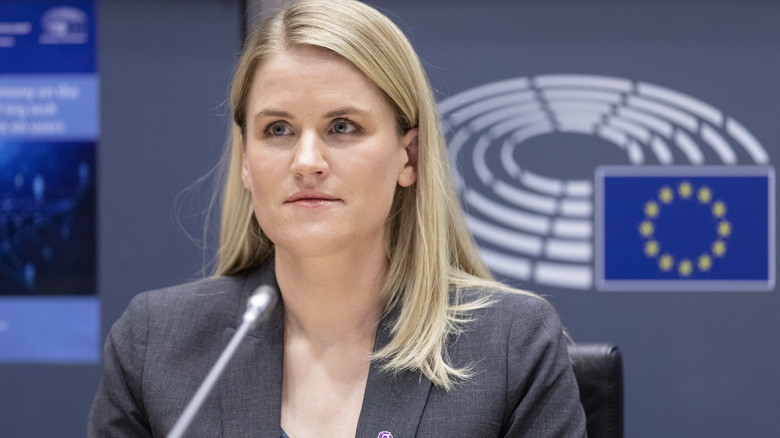Think Twice Before Letting Your Child On Social Media Before This Age
There was a time when the last thing parents had to think about was the age their children should be exploring social media. Things were much simpler when all they had to worry about was how much time their little ones were spending in front of a television — because at least back then there was age-appropriate programming! A few hours spent watching "Sesame Street" or Disney Channel feels much more stimulating to a young mind than hours spent scrolling on Facebook, Twitter, or Instagram.
Per Family Zone, most social media apps do have 13 as a minimum age requirement to create an account, but there's still no way to prove a new user is 13. As the outlet notes, that age became a catch-all on social media, thanks to a 1998 law created when the Internet was still fairly new. This law, known as the Children's Online Privacy Protection Act (COPPA), "made it illegal to collect or store the personal information of children under 13." As we all know, social media is infamous for gathering data that helps companies target ads and posts towards your likes and dislikes, ultimately making for a more user-friendly experience. But just because children can be on social media by the age of 13, is that still too young?
Children and social media became a congressional topic
In the fall of 2021, a former Facebook employee named Frances Haugen released sensitive documents to the press which outlined how the social media giant operates, according to NPR. Haugen also testified before Congress to explain how the company targets children and adolescents. As NPR outlined, she went on to detail how using social media negatively impacts teenagers, citing Facebook research which found that 13.5% of teen girls claimed the platform worsened suicidal thoughts, and 17% felt that Instagram led to eating disorders.
During the hearing, Connecticut Senator Richard Blumenthal contributed to Haugen's testimony by reading aloud a text he received from a constituent whose daughter was negatively impacted by Instagram, per ABC News. "My 15-year-old daughter loved her body at 14. Was on Instagram constantly and maybe posting too much," the text said. "Suddenly she started hating her body. Her body dysmorphia, now anorexia, and was in deep deep trouble before we found treatment. I fear she'll never be the same." Prior to Haugen's testimony, Facebook — which has now rebranded to "Meta" — was preparing to launch a version of Instagram targeted to children younger than 13 years old. Per NPR, it has since put those plans on pause.
If you are struggling with an eating disorder, or know someone who is, help is available. Visit the National Eating Disorders Association website or contact NEDA's Live Helpline at 1-800-931-2237. You can also receive 24/7 Crisis Support via text (send NEDA to 741-741).
A child psychologist recommends the appropriate age for social media
According to a 2016 census report from Common Sense Media that surveyed parents of children aged 8-18, 56% of children were reported to have their own social media accounts (via CNN). The survey further broke down the numbers by age, revealing that 80% of children over the age of 13 had their own social media accounts, as compared to just 23% of those between the ages of 8 and 12. Though social media apps typically ask for users to be over the age of 13 in their terms of service, University of Alabama child psychologist Vivian Friedman believes that 12 is an appropriate age for adolescents to begin using social media. Why? Because that is when children begin thinking in more abstract terms, as Friedman told CNN.
That said, it's still important for parents to talk to their children about the responsibilities that go along with social media use. Caroline Knorr, a parenting expert with Common Sense Media, backed up Friedman's thinking, and expressed her belief that parents and children should explore social media privacy settings together, per CNN. "It's important for parents and kids to talk about what is appropriate to put up and what is not appropriate," she said. "I do think around 12 years old is when kids have that capability to follow your rules and to understand that those rules are really important and set in place to help protect their safety."


